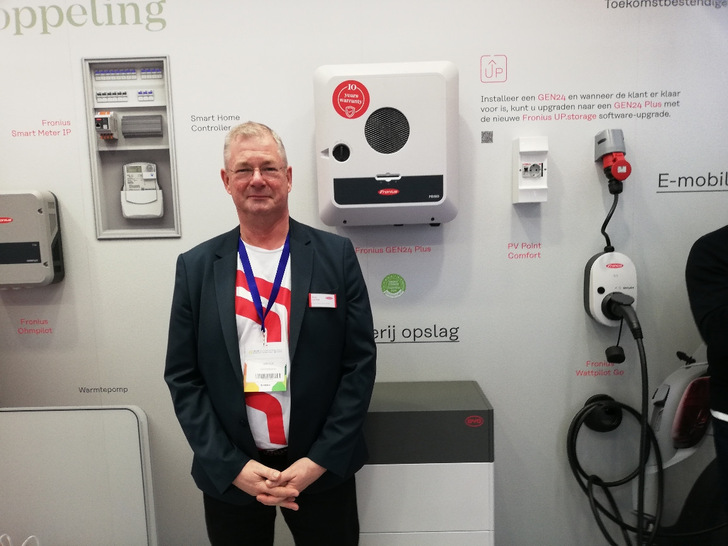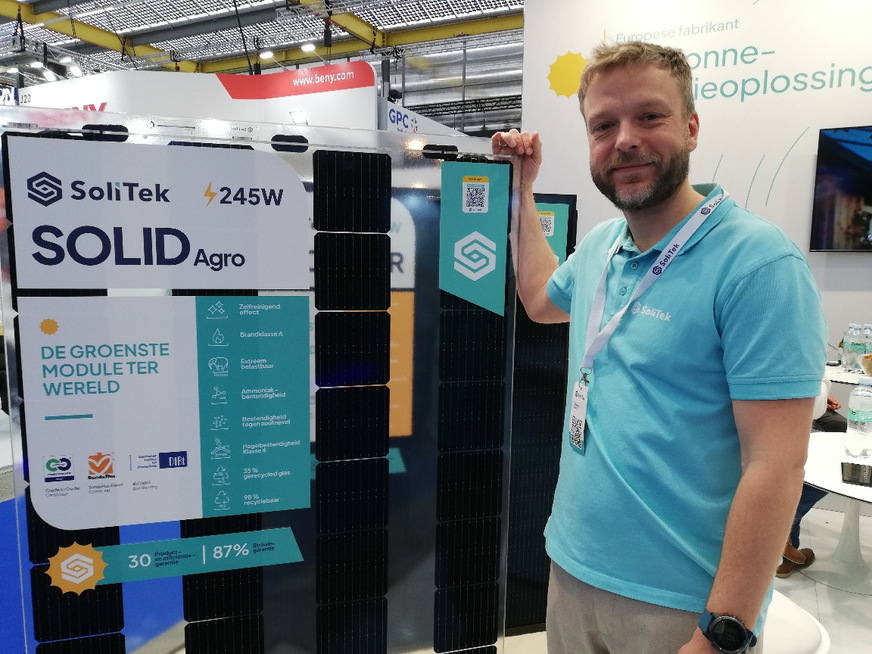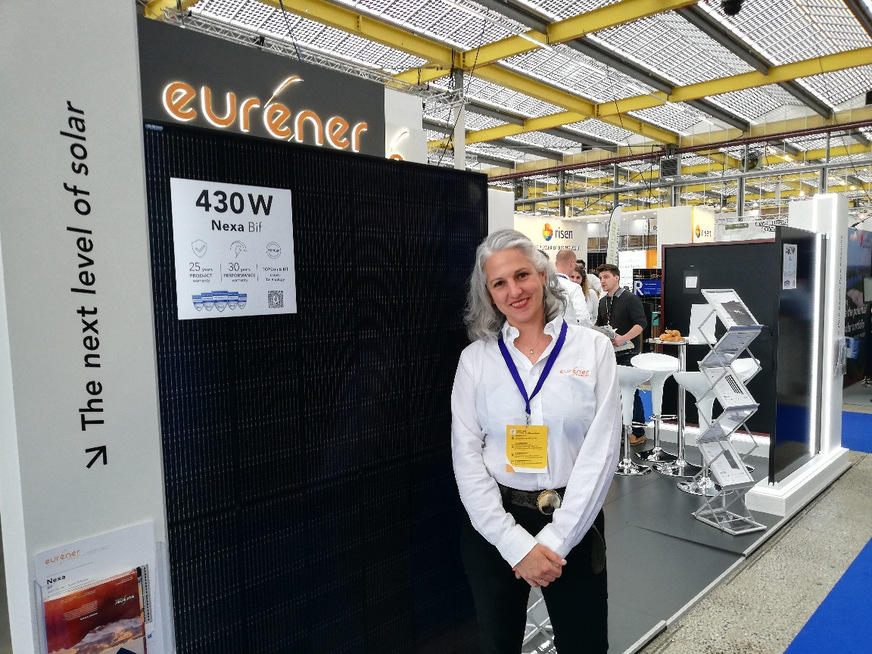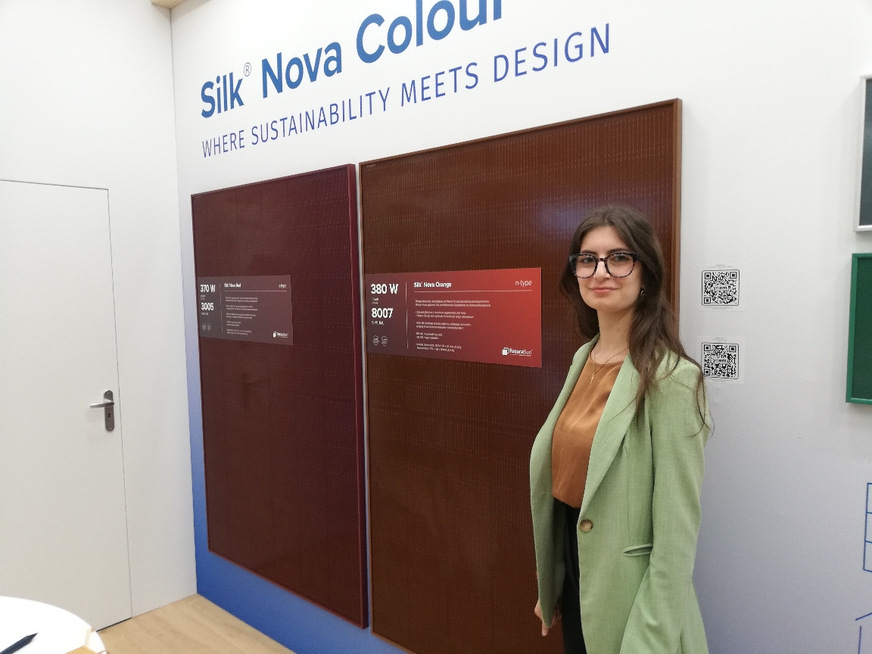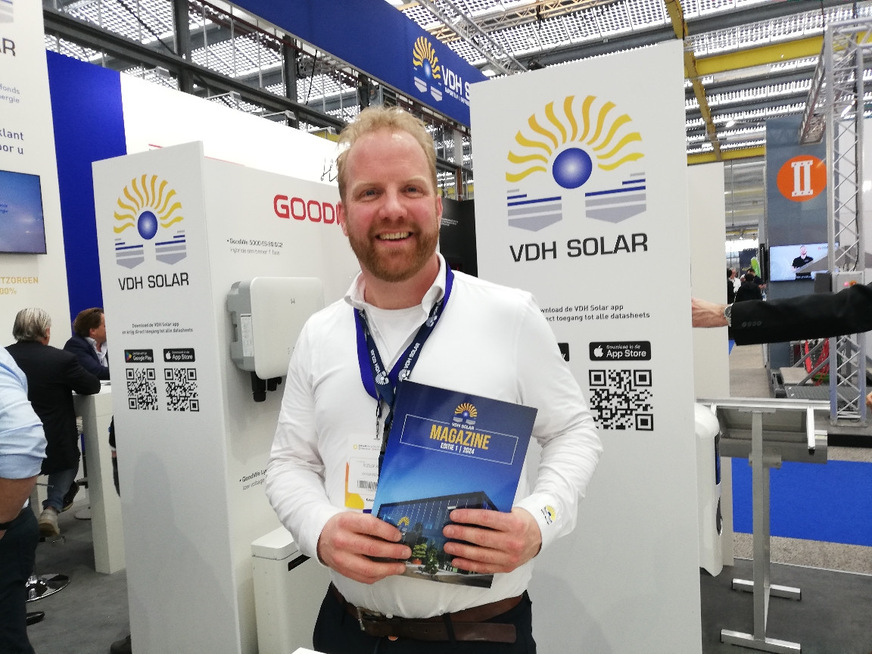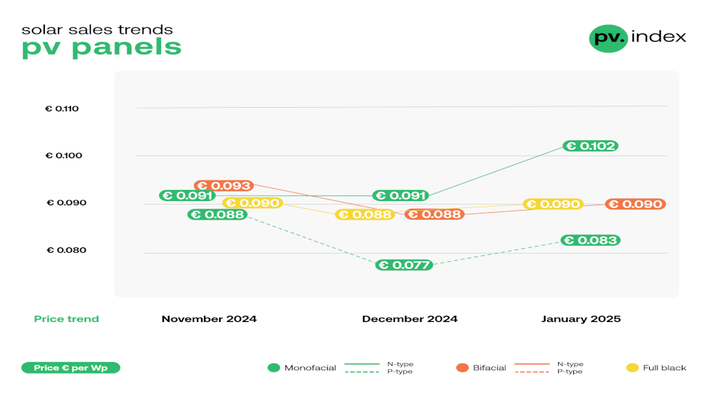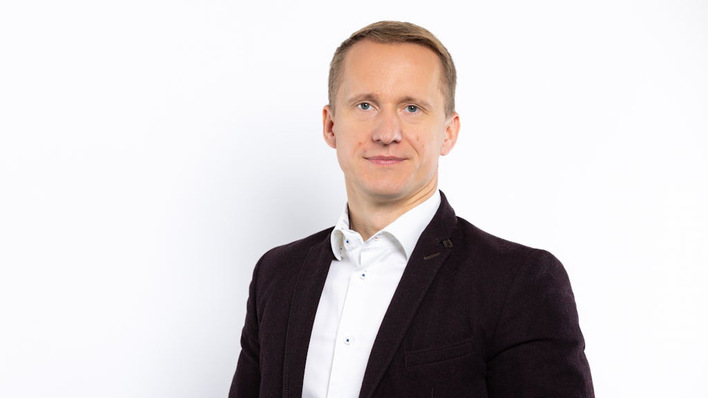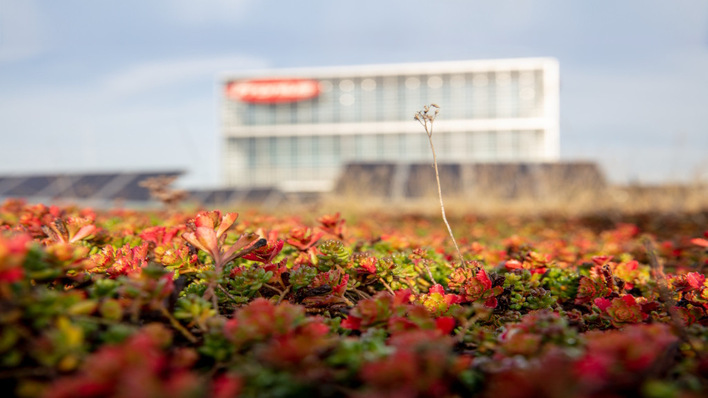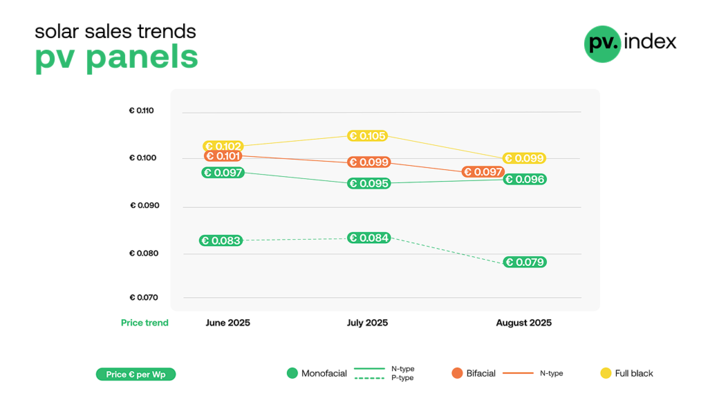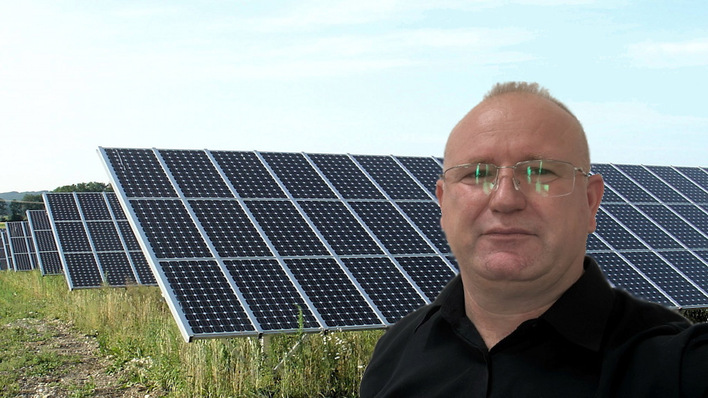For example, double-sided glass-glass modules are increasingly becoming the standard for private photovoltaic roof systems. Around 1 kilogram of plastic to cover the backsheets of the modules can be dispensed with in this way and the modules are more durable. The trend is largely driven by the lower weight of the advanced solar glass. Glass-glass modules are now no heavier than those with plastic backsheets, according to Michael Katz, Manager Regional Marketing and Communications at Trina Solar in Munich. The Chinese module manufacturer was one of over 300 companies that presented their products and innovations at Solar Solutions Amsterdam 2024 from from March 18-21.
The Lithuanian module manufacturer Solitek, which has been one of the first solar companies to offer glass-glass modules since 2014, was also there. The solar glass comes from Germany and France, according to Paulius Kuodis from the company's Business Development department. The company currently produces 250 megawatts (MW) of modules per year, although the solar cells come from China. Solitek is also focusing heavily on building-integrated photovoltaics and offers semi-transparent modules for carports, among other things, which are also suitable for agro-photovoltaics due to their greater light transmission. Kuodis also stands out from the competition thanks to its particularly high sustainability standards, such as "Cradle to Cradle" certification (in gold) and the use of 35% recycled glass. Last year, the company announced the planned construction of a 600 MW module factory in Italy.
Modules with their own color note in vogue
Other European module manufacturers such as Eurener from Valencia/Spain and Futura Sun from Italy were also present in Amsterdam. Eurener produces 260 MW of solar panels annually and also sources its cells from China. The company presented high-performance modules not only in trendy all-black, but also in terracotta. Futura Sun also exhibited high-performance modules in various colors to meet different aesthetic requirements. According to Melissa Zecchino from the company's sales team, the Silk Nova Orange modules were particularly well received at the trade fair. Futura Sun, based in Cittadella near Padua, operates its own module production facility with 1 gigawatt (GW) in China, which is to be expanded to 3 GW. This summer, the company plans to start its own production of the latest generation of solar cells (N-Type) with 12 GW in China. A 1 GW module production facility in Italy is also planned in the next few years. The company also presented modules in Amsterdam that are particularly resistant to hailstorms and high snow loads. Futura Sun also focuses strongly on sustainability and can also offer carbon neutral panels thanks to offsetting by certified carbon credits.
Like other exhibitors in Amsterdam, Jaap van Eijk, Technical Advisor at Fronius International, sees light in the sky for the underdeveloped energy storage market for households in the Netherlands. Despite the existing net metering, interest is also growing in applications in the private sector as a result of the sharp reduction in the cost of battery storage systems. The limiting factor, however, is the relatively small houses in the Netherlands with correspondingly less solar-usable roof space for other applications, be it storage, Power2Heat or charging electric cars. According to van Eijk, however, there is already a growing storage market in the commercial sector, which is also reflected in the interest shown by installers at the trade fair in corresponding solutions.
Enourmous need for training and qualification
However, van Eijk sees a bottleneck for the PV market and sector coupling in the comparatively low qualification level of installers in the Netherlands. In some cases, there is a lack of basic electrical knowledge and the requirements for setting up an installation company are very low. The need for training and qualification is therefore enormous and many players, including wholesalers, are called upon to do more in this area. Fronius currently has around 200 certified partner installers in Benelux and offers on-site training twice a year in addition to online courses.
EWS Managing Director Jan Paul Dahm also sees the low level of installation expertise in the Netherlands as a challenge. The company is trying to counteract this with support services, but unfortunately quality awareness is not yet as developed in terms of customer care and consulting intensity, says Dahm. Roelof Kramer, Marketing Manager at Dutch wholesaler VDH Solar pointed out that VDH Solar is therefore also greatly expanding its range of training courses in cooperation with suppliers. (hcn)


